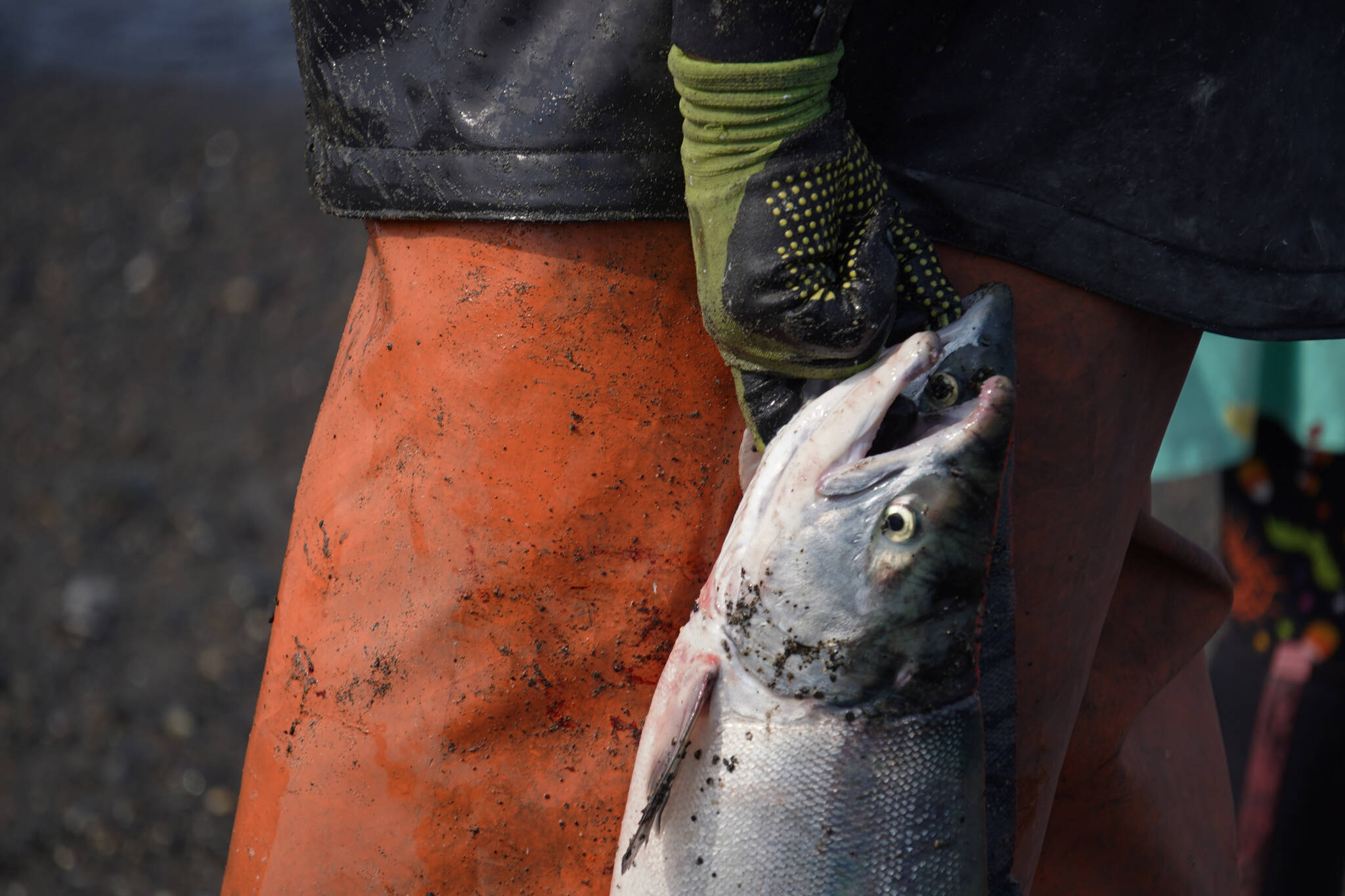The State Board of Fisheries will in March consider expansions to the season dates and weekly fishing periods for the commercial dipnetting fishery they created earlier this year.
The board on Wednesday, Oct. 30, accepted an agenda change request penned by Joseph Person — ACR 4 in this year’s work session agenda. The board decided to take no action on two similar requests, ACRs 5 and 6, based on that decision. A proposal based on Person’s request will be considered during the board’s meeting on “Statewide Shellfish, Prince William Sound Shrimp, and Supplemental Issues,” scheduled to run from March 11-16 in Anchorage at the Egan Civic and Convention Center.
Person’s request seeks an expansion of the season and fishing periods for commercial dipnetting in the east side setnet fishery, which was created by the board in the Kenai River late-run king salmon stock of concern management plan and given emergency approval — but not permanent approval — by the Commercial Fisheries Entry Commission this year. In his request, Person writes that after spending a season with a dipnet in hand, the gear is “clearly very low efficacy,” but that his fishery was able to operate without impacting king salmon.
He asks for more open time, specifically 12 hours per day every day from June 20 to Aug. 15, up from three 12-hour openings per week only between June 20 and July 31.
He says that model will allow fishers to get around variables like bad weather while still harvesting more of the abundant sockeye with the gear. He says the modification is warranted because the commercial dipnet fishery was new and experimental.
The State Department of Fish and Game, in assessing the request, agreed with Person’s justification — saying that the request indeed addresses an effect on a fishery that was unforeseen when a regulation was adopted.
Members of the board, too, said that they can take the new information generated by the first year of the new fishery and “fine tune.”
Chair Märit Carlson-Van Dort, of Anchorage, said that when the board approved dipnets in the ESSN, they didn’t know whether the gear would perform, whether people would want to fish, and how weather might impact the fishery.
“I think it is appropriate to drill down into this new fishery — into the dipnet fishery — and have some subsequent conversations later this cycle to talk about how it can be refined going forward,” she said.
Board member Tom Carpenter, of Cordova, said Wednesday “obviously this is new.” He said when the board added dipnets in March, they had no idea whether fishers would be successful.
“I would like to have further discussion on it,” he said.
Mike Wood, of Talkeetna, said he shared the desire to take a fresh look at the fishery.
“The whole point was to attempt to harvest sockeye without killing any kings whatsoever,” he said. “I think the attention to this really needs to be given, based on the fact that this is a new fishery, and just make sure that we’re doing it right.”
The request was supported in a 5-1 vote from the board, with only member Greg Svendsen, of Anchorage, opposed. Svendsen did not speak in opposition or to explain his vote during the meeting.
With the request accepted, the department will generate a proposal to be considered at the March meeting. Carlson-Van Dort said that when the board considers that proposal next year, they can make their own adjustments to achieve their goals for the commercial dipnet fishery.
Another ACR written by Person, calling for the use of leads in the commercial dipnet fishery, was unanimously rejected without significant discussion. Department comments on the request say that the board previously rejected leads and that no new information is available.
The Commercial Fisheries Entry Commission, which previously rejected permanent approval of dipnets, is again unfolding the process to add dipnets as a gear type for permit holders in Cook Inlet’s upper subdistrict. Commissioner Glen Haight told the board on Oct. 29 that he’d heard a lot of negative responses from setnetters — who said the gear might not be economically feasible or safe.
“From the input that I received back from people, it did not appear that this was going to be a commercially viable fishery,” he said. “I knew it was good for the summer. People were going to test it out and they were going to learn some folks.”
Board action could change the math for the commission and for the fishers.
“You have the opportunity to give it a little more opportunity.”
A full recording of the Board of Fisheries work session can be found at adfg.alaska.gov.
Reach reporter Jake Dye at jacob.dye@peninsulaclarion.com.

